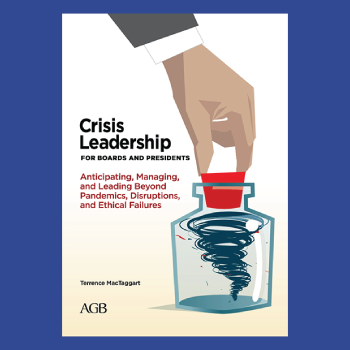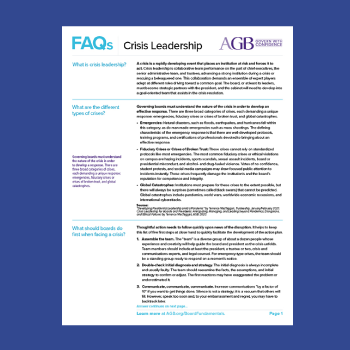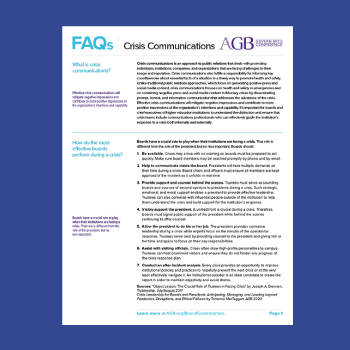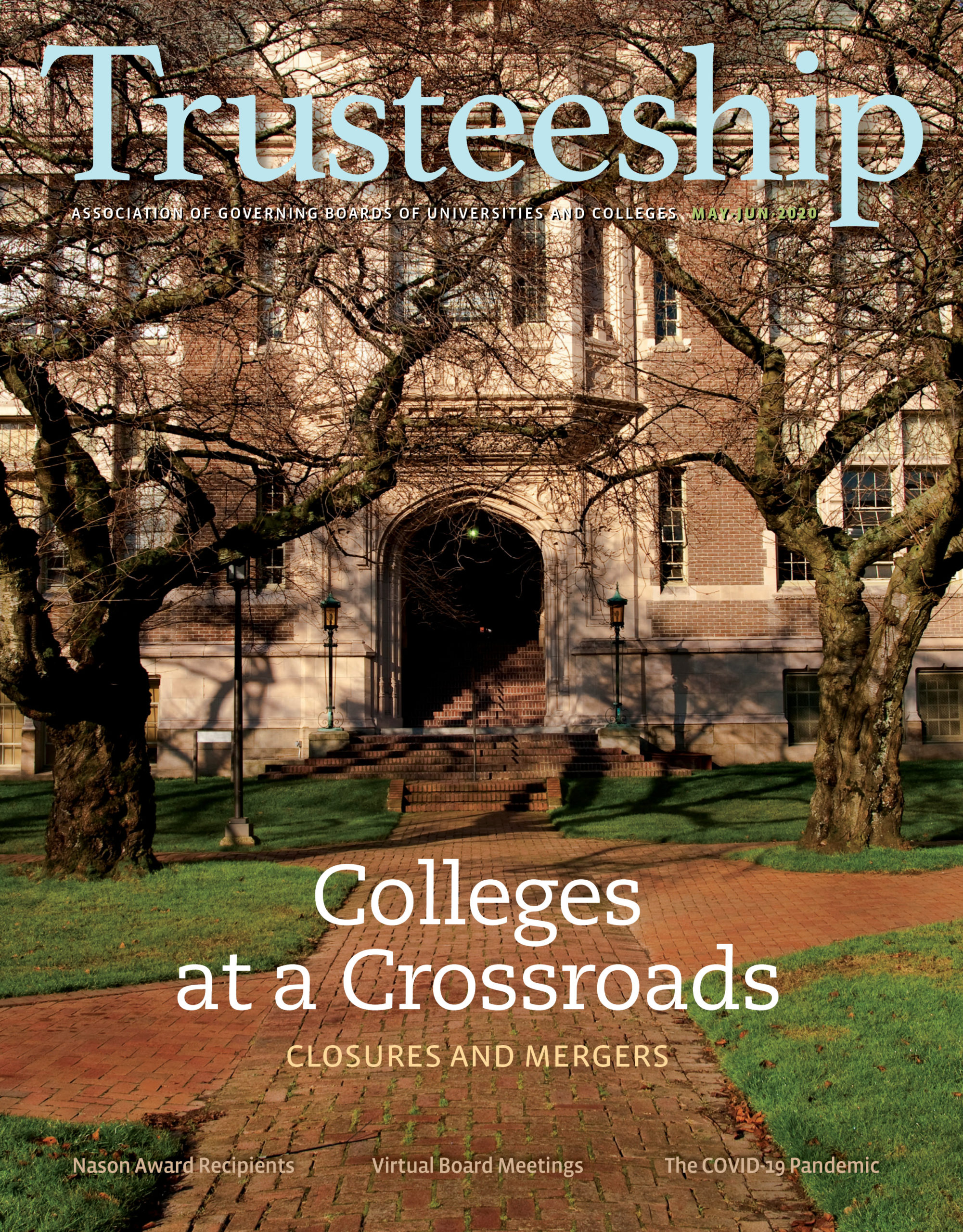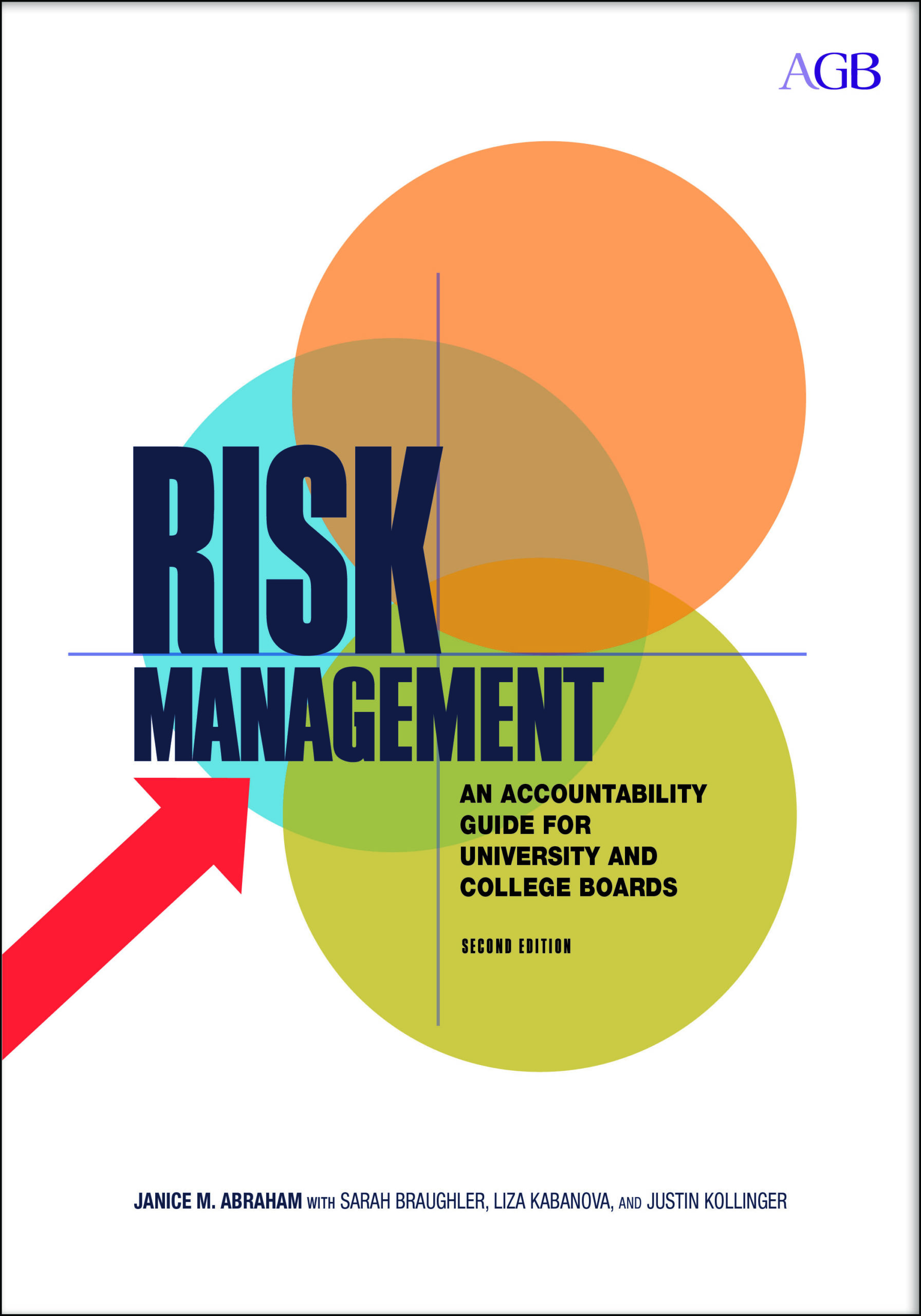Why this is important.
Crises within the higher education arena were rising both in number and severity well before the coronavirus eruption. Risks that foreshadow crises are often ignored or underestimated. Fast-moving social media platforms convert problems into crises overnight, partisan and ideological conflicts add fuel to the flames, extreme weather events strike without warning, and changing markets and demographics result in sustainability crises for many institutions.
Crises are inevitable in higher education, but dynamic crisis leadership ensures institutional viability through even the darkest of times. Governing boards are uniquely positioned to assist colleges and universities in navigating complex challenges, from the global COVID-19 pandemic to diminishing enrollments, declining government funding, and public skepticism about the value of a college education today.
No matter the crisis, practicing sound governance and scenario planning is the best way to anticipate crises and to resolve them once they erupt. With effective leadership, institutions and their boards can emerge from a crisis with greater awareness, resiliency, and commitment to integrity.
Ultimately, such resilience and adaptability enable governing boards to lead with greater confidence in today’s tumultuous environment.
Source: Crisis Leadership for Boards and Presidents: Anticipating, Managing, and Leading beyond Pandemics, Disruptions, and Ethical Failures by Terrence MacTaggart, AGB 2020
Questions for boards.
Click below to reveal questions for your board to consider:
Situation
Consequential Questions:
- What is happening in the world around us that might pose risks and threats to us as well?
- What are we doing or what are we avoiding that makes us vulnerable to risks, threats, and actual crises?
- What lessons are offered by similar colleges in similar situations to this crisis?
- What fundamental principles and strategic concerns are relevant here in this crisis?
Source:
Crisis Leadership for Boards and Presidents: Anticipating, Managing, and Leading beyond Pandemics, Disruptions, and Ethical Failures by Terrence MacTaggart, AGB 2020
Leadership
Consequential Questions:
- Do we have the right board leadership and administrative competence to deal with this crisis?
- Are your board and president prepared to seriously reimagine the college’s business model to meet the new realities in the higher education marketplace?
Source:
Crisis Leadership for Boards and Presidents: Anticipating, Managing, and Leading beyond Pandemics, Disruptions, and Ethical Failures by Terrence MacTaggart, AGB 2020
Planning
Consequential Questions:
- Are emergency response plans clear, distributed to the right people, accessible when needed, and periodically tested and updated?
- Are the board and president seriously engaged in enterprise risk management (ERM) to help prevent or at least mitigate a large number of potential crises?
- Do we have the resources necessary to conduct a postcrisis evaluation?
Source:
Crisis Leadership for Boards and Presidents: Anticipating, Managing, and Leading beyond Pandemics, Disruptions, and Ethical Failures by Terrence MacTaggart, AGB 2020
Recommended resources.
We carefully curated these staff-picked resources for you:
Be Prepared
Blog Post
Carol A. Cartwright
AGB Roundtable Discussion: Board Responsibility for Organizational Values and Communication amid Global Conflict
Webinar On Demand
Facilitated by Cristin Toutsi Grigos, Ellen Chaffee, Thomas Hyatt, and Mary Papazian
Navigating Communication and Cultural Challenges on Campus
Podcast
Featuring Morgan Alexander, Simon Barker, and Erin Bossen


